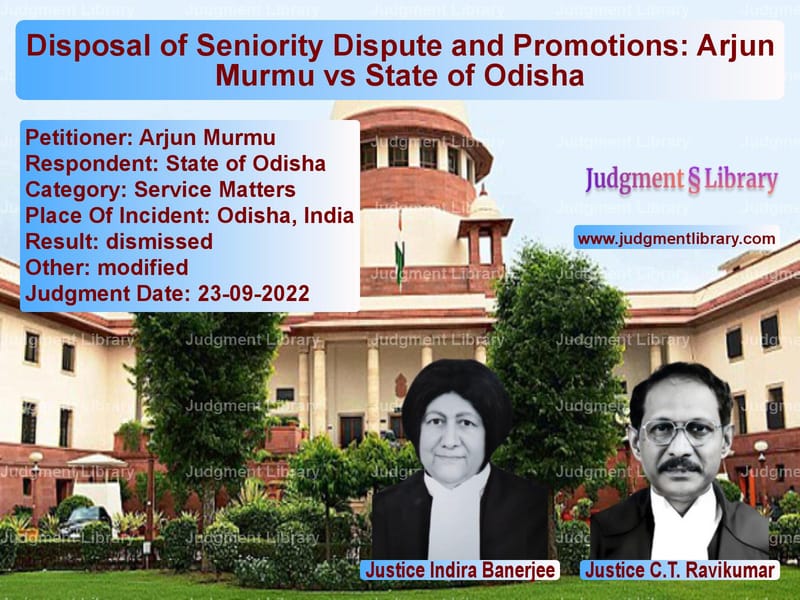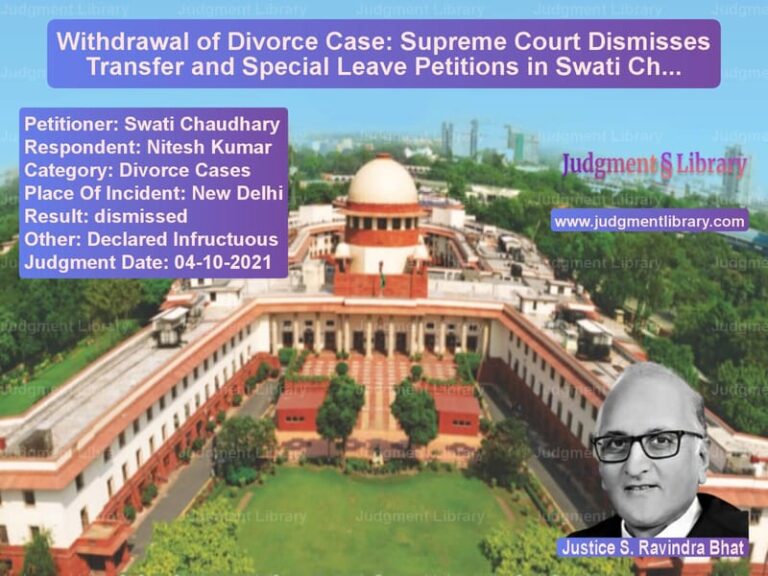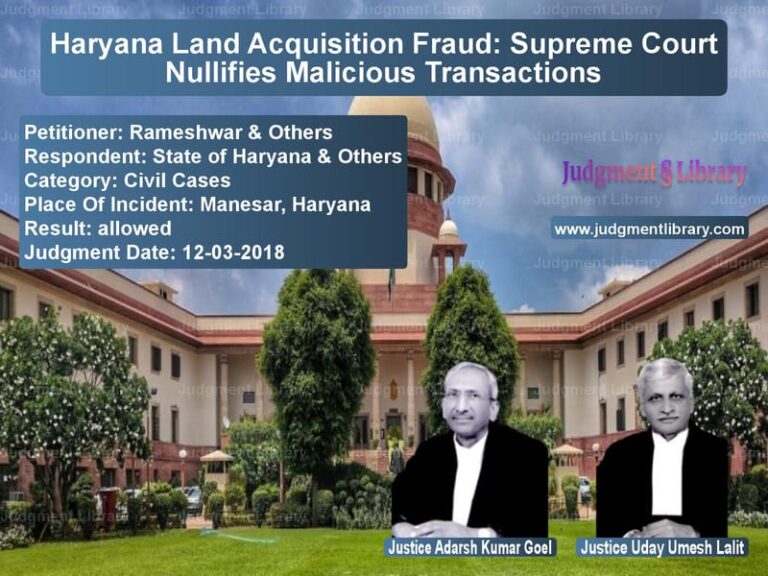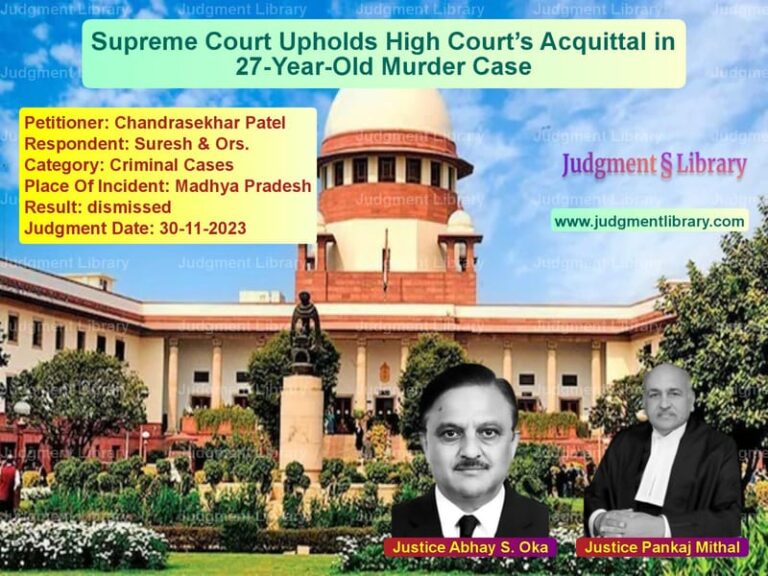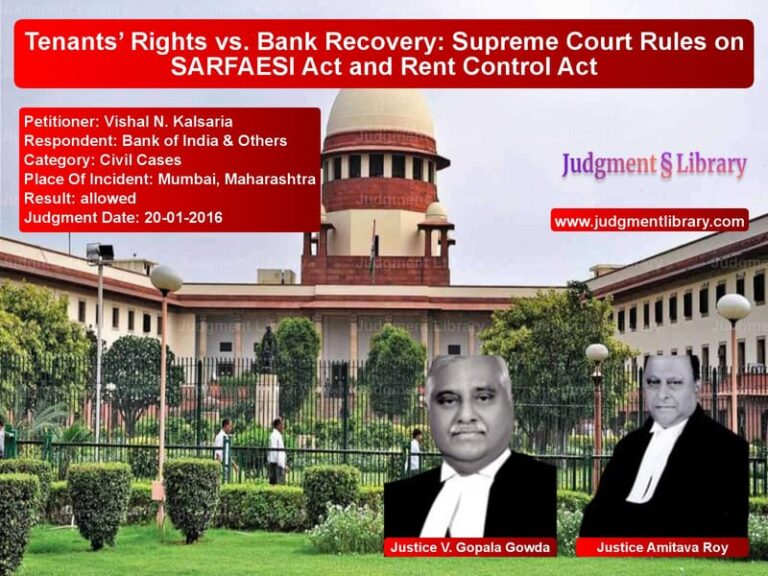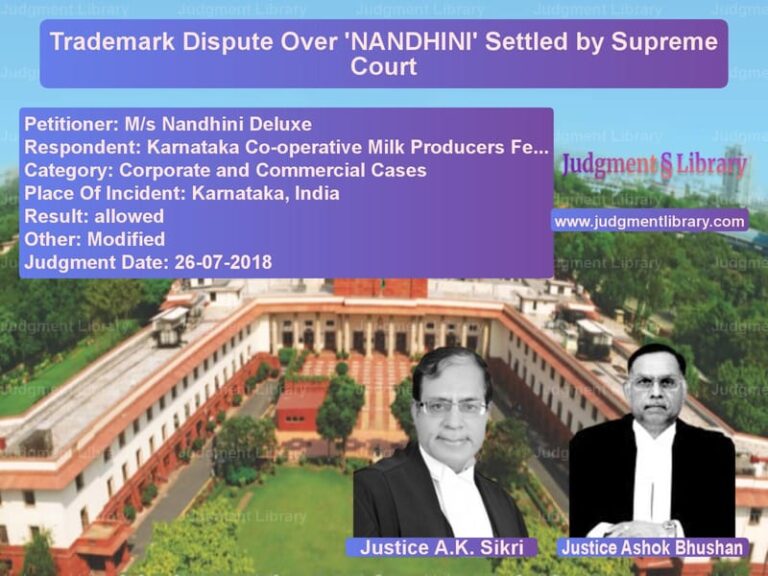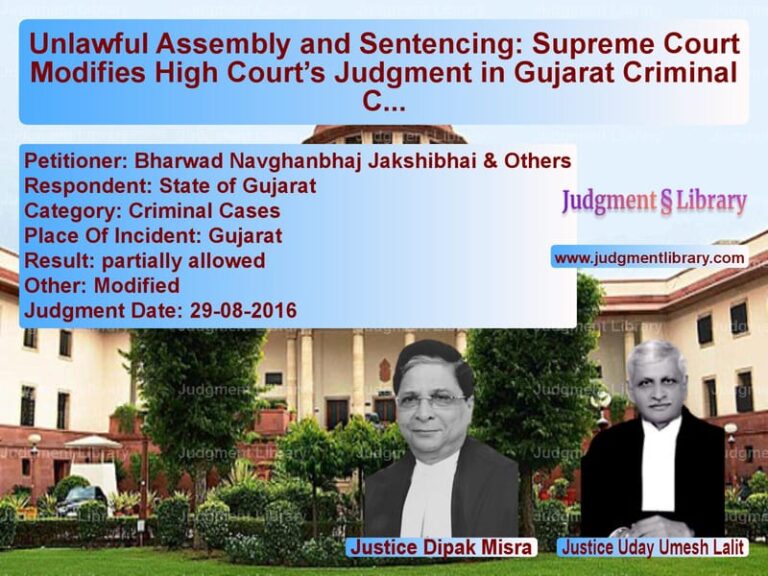Disposal of Seniority Dispute and Promotions: Arjun Murmu vs State of Odisha
The case of Arjun Murmu vs The State of Odisha is a significant legal dispute concerning the seniority list of Assistant Section Officers (ASOs) under the special recruitment drive for Scheduled Tribes in the state of Odisha. The case specifically addresses the issue of promotions and seniority between different batches of ASOs, particularly those recruited under the general quota and the special quota. The petitioners, along with other affected parties, challenged the fixation of inter-se seniority in the final gradation list published by the State of Odisha in June 2020.
Background of the Case
The appellants in this case, Arjun Murmu and others, were appointed as ASOs under the special recruitment drive for Scheduled Tribes. The recruitment process was carried out by the Odisha Government in response to the backlog vacancies. Upon the completion of the recruitment process, the State of Odisha published a tentative gradation list in April 2018, which assigned seniority to the ASOs appointed under the general recruitment drive above those appointed under the special recruitment drive.
Aggrieved by this decision, the appellants filed objections to the gradation list. The objections were filed on the grounds that the seniority of the special recruits, who were appointed earlier in time, was wrongly placed behind those from the general quota. Despite the representations and objections filed by the appellants and others similarly situated, the final seniority list was published, continuing the assignment of seniority in favor of the general recruits. This led to the filing of Writ Petition No. 24191 of 2020.
When the Writ Petition came up for hearing, the Single Judge of the High Court issued an interim order, directing that any promotions arising from the seniority list be subject to the result of the Writ Petition. The appellants appealed against the High Court’s interim order, which led to the filing of this Civil Appeal before the Supreme Court.
The Petitioner’s Arguments
The appellants, represented by counsel, argued that the seniority list as it stood was unfair and discriminatory. The primary argument was that the special quota recruits had been appointed first, and thus, should have been given priority in the seniority list. The appellants contended that assigning seniority to the general recruits over the special recruits was a violation of the principles of equality and fairness under the Constitution of India, particularly in light of the fact that the general recruits were appointed after the special recruits.
Additionally, the appellants argued that the promotions arising out of the final gradation list were being delayed, which was detrimental to the functioning of the administration. They further claimed that the High Court’s interim order had caused unnecessary delays and had resulted in the vacancies for the promotion of ASOs being left unfilled for an extended period. The appellants requested that the Seniority List be corrected and that promotions be permitted in accordance with the revised seniority order.
The Respondent’s Arguments
The State of Odisha, through its counsel, defended the seniority list and argued that the recruitment process was carried out as per the statutory guidelines and that the seniority of the general recruits was rightly placed above the special recruits. The State contended that the general recruitment process followed the prescribed procedures and that the final gradation list reflected the due process of law. The State also pointed out that the delay in filling the vacancies was due to the pendency of the Writ Petition, and the authorities could not make promotions until the matter was resolved.
Read also: https://judgmentlibrary.com/supreme-court-remits-panchayat-employees-dismissal-for-fresh-inquiry/
The State further argued that the interim orders issued by the High Court and the subsequent appeal before the Supreme Court had complicated the promotion process, which had led to a backlog of vacant posts. The State asserted that while it acknowledged the concerns raised by the appellants, it was bound to follow the legal procedures, and the seniority list should remain intact until a final decision was made on the Writ Petition.
The Court’s Analysis
The Supreme Court, in considering the appeal, noted the complexity of the case, especially the issue of seniority between the two batches of ASOs. The Court recognized that the seniority dispute had caused significant delays in promotions, leading to vacancies remaining unfilled. The Court also observed that the matter had been pending in the High Court for an extended period and that an early resolution of the issue was essential to ensure the efficient functioning of the State’s administration.
The Court emphasized the importance of resolving the seniority issue expeditiously and noted that the final gradation list published by the State was a source of considerable dispute. The Court also took into account the balance of convenience and the need to fill the vacant posts without causing further delays in administration. However, the Court refrained from passing any final judgment on the merits of the seniority dispute, as the Writ Petition was still pending before the High Court.
Final Judgment
The Supreme Court disposed of the appeal with a direction to the High Court to expedite the disposal of Writ Petition No. 24191 of 2020. The Court emphasized that the Writ Petition should be disposed of within two months from the date of receipt of the Supreme Court’s order. The Court further stated that in the event that the Writ Petition could not be disposed of within the stipulated time, the Respondent authorities were allowed to proceed with promotions based on the final gradation list of ASOs, but subject to the outcome of the Writ Petition.
The Court also made it clear that the respondents and the appellants should cooperate in ensuring the timely disposal of the Writ Petition and that the issue of promotions would remain in abeyance until the final decision on the matter. The Court disposed of the Civil Appeal with this order, ensuring that all interlocutory applications were also disposed of.
Significance of the Judgment
This judgment highlights the importance of expedient resolution in administrative matters, particularly when seniority and promotions are at stake. The Supreme Court emphasized the need for the Writ Petition to be disposed of promptly to avoid continued delays in the promotion process. The ruling also reinforces the importance of cooperation between all parties to ensure that administrative functions continue smoothly, especially when disputes arise over the interpretation of seniority and recruitment policies.
Moreover, the judgment underlines the need for clarity in the seniority determination process and the resolution of disputes in a timely manner to ensure that public administration remains efficient and effective. The decision also illustrates the Supreme Court’s role in balancing the legal rights of individuals with the need for functional governance.
Petitioner Name: Arjun Murmu.Respondent Name: State of Odisha.Judgment By: Justice Indira Banerjee, Justice C.T. Ravikumar.Place Of Incident: Odisha, India.Judgment Date: 23-09-2022.
Don’t miss out on the full details! Download the complete judgment in PDF format below and gain valuable insights instantly!
Download Judgment: arjun-murmu-vs-state-of-odisha-supreme-court-of-india-judgment-dated-23-09-2022.pdf
Directly Download Judgment: Directly download this Judgment
See all petitions in Employment Disputes
See all petitions in Public Sector Employees
See all petitions in Judgment by Indira Banerjee
See all petitions in Judgment by C.T. Ravikumar
See all petitions in dismissed
See all petitions in Modified
See all petitions in supreme court of India judgments September 2022
See all petitions in 2022 judgments
See all posts in Service Matters Category
See all allowed petitions in Service Matters Category
See all Dismissed petitions in Service Matters Category
See all partially allowed petitions in Service Matters Category

